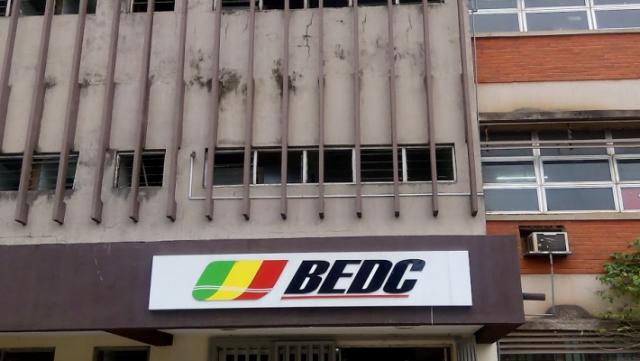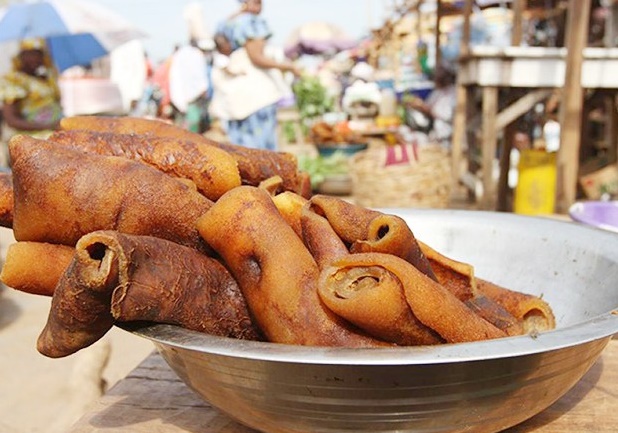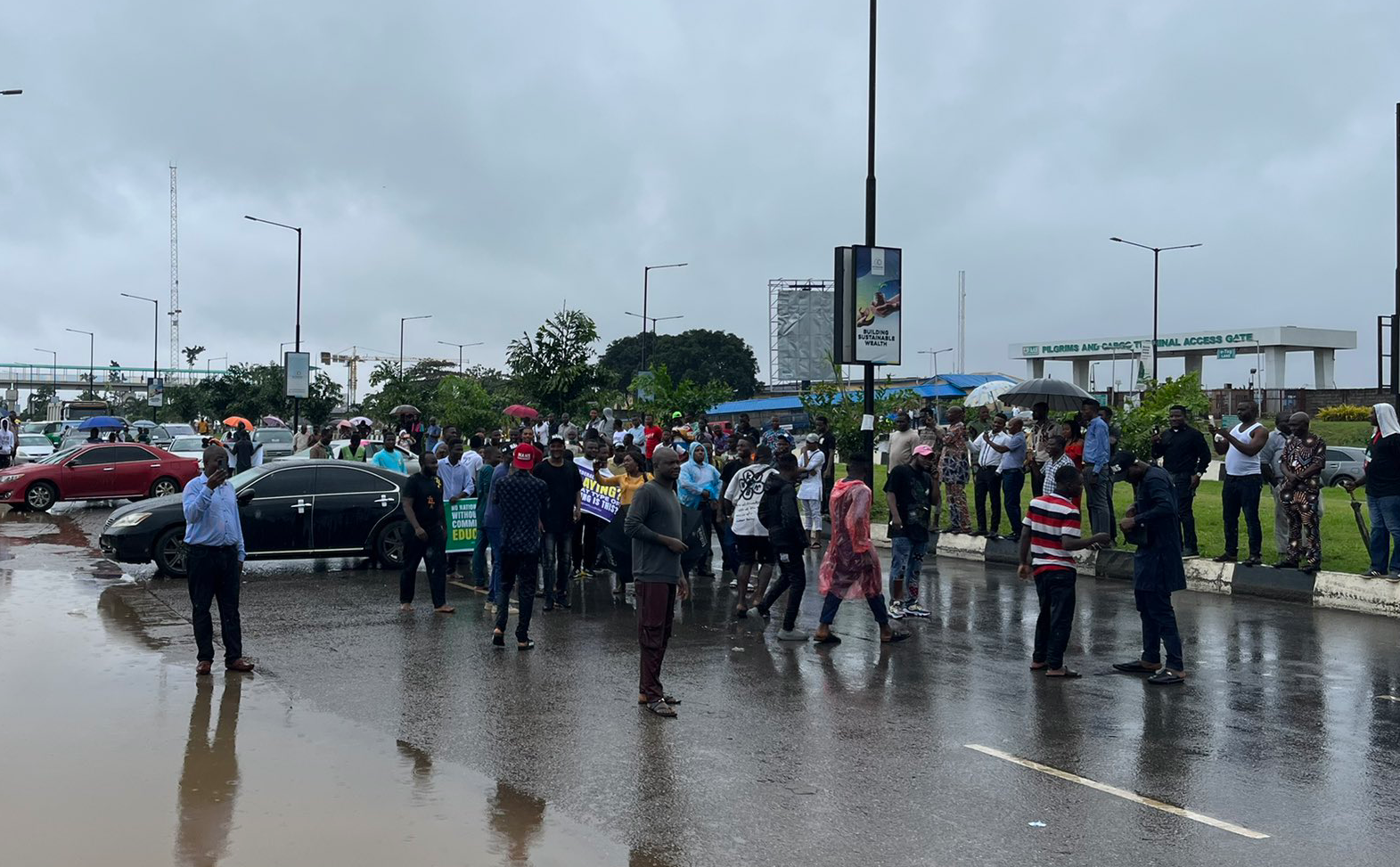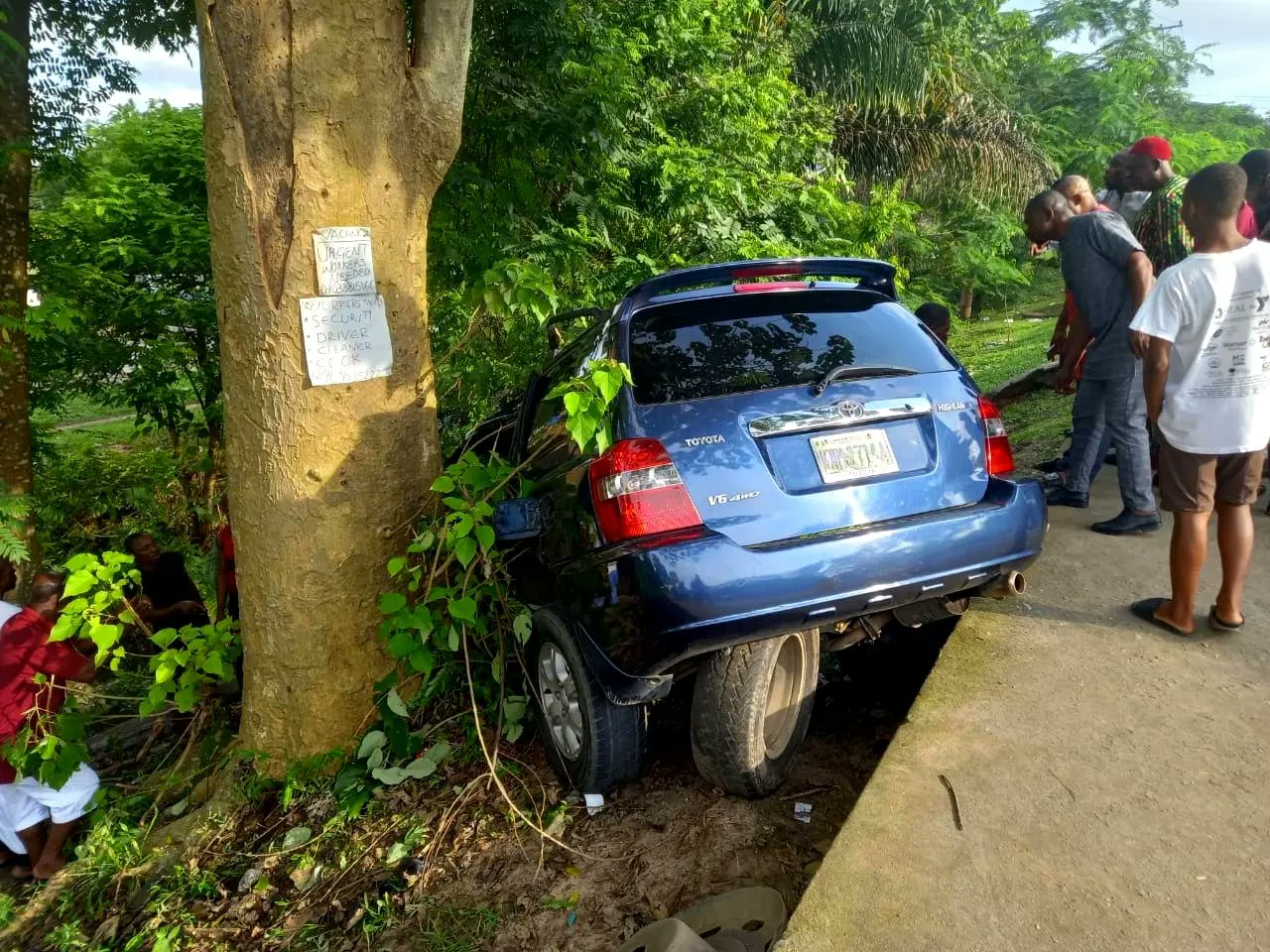September 19, 2022 10:08 am
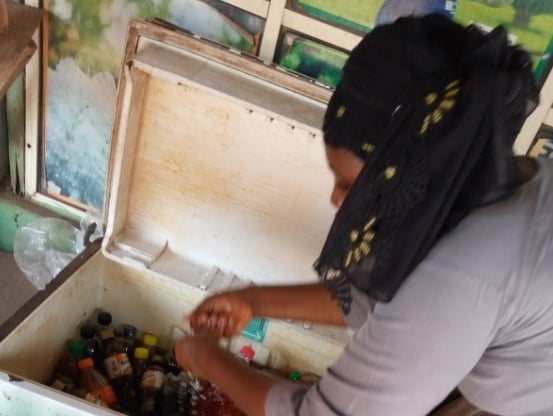

Zainab displaying ice block she bought for her goods. Photo: Abdulganiyu Abdulrahman Akanbi
BY ABDULGANIYU ABDULRAHMAN AKANBI
Maryam Ibrahim, aged 27, held a broom in her right hand and wiped sweat with the other hand as she swept her shop. Her look suggested sadness as dust powdered her face.
“I’m just opening my shop after two weeks of closure. As you can see, it is dusty. I closed it due to the loss I encountered the last time I bought goods on credit,” she said.
According to Maryam, in late March, she ordered items such as fish, chicken, and crabs on credit. However, between the national grid collapse and poor power supply, she said business has not been good for a while.
Advertisement
“I got goods on credit for N40,000 to boost my business. However, I recorded loss because there was no light. Out of N40,000 invested, I was only able to realise N8,000. This is a great loss for me,” she said.
“I’m tired of this business. I’m enduring it just to have something to engage in. There is no profit at all.
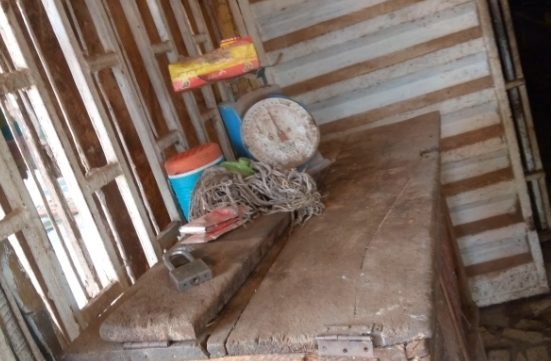
“I don’t have money to buy a generator. That’s why my business is not moving. Those people don’t want to supply me goods on credit again.”
Advertisement
Another fish seller, who identified herself as Mrs. Abdulsalam, also said poor power supply had caused her great loss.
“As there is no light, my goods get spoilt. If I have a generator to power my freezer, there won’t be any problem. The absence of electricity has made me lose not only customers, but money I invested in the business,” she said.
OVER 200 GRID COLLAPSES IN 10 YEARS
Like Maryam, several women running retail businesses in Kwara communities are affected by epileptic power supply, which is also worsened by national grid collapses — the grid has collapsed at least seven times in 2022. Meanwhile, according to a statement by the World Bank in February 2021, “85 million Nigerians don’t have access to grid electricity”.
Advertisement
Aside from the collapses in 2022, between 2010 and 2019, the national grid is said to have collapsed 206 times. In 2021, the grid collapsed four times within eight months. This development has caused power disruption in parts of the country.
Meanwhile, in Nigeria, women constitute 40 percent of the millions of persons involved in small and medium enterprises according to Global Entrepreneurship Monitor.
FASHION DESIGNER NOW POS AGENT
Oladipupo Samuel, a 55-year-old fashion designer, was sleeping on a bench when this reporter visited her shop.
Advertisement
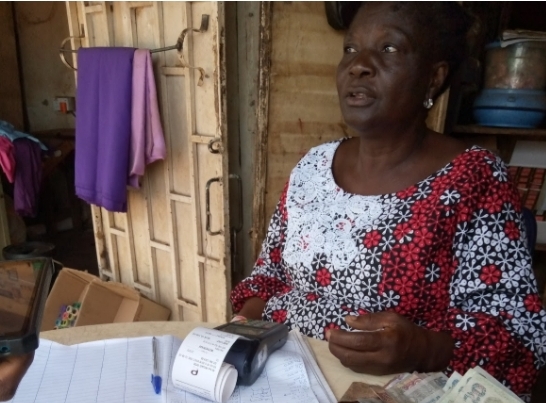
“We are really suffering poor electricity supply here. For a week now, we haven’t had light. Sometimes, it will be a month without light. I’m losing customers every day,” she said.
“For about two weeks now, I have been coming to my shop and sleeping. As you can see, you also met me sleeping. When I saw the situation and I have children at home to feed, I become a POS agent to improve my income.
Advertisement
“At this period, it is very hard for me to take care of my children. In fact, to eat three times a day is sometimes difficult.”
PRICE HIKE ON ICE BLOCKS
Advertisement
Fatimoh Abdulganiyu, aged 40, processes kunu (a local drink made from guinea corn) in her shop. Her freezer used to be overflowing with cold water, soft drinks and kunu.
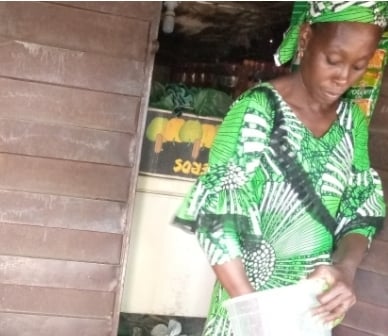
“The poor power supply affects the price of goods and my sales so badly. I now use ice block make sales,” she said.
Advertisement
“The ice block we used to buy at the rate of N120, we now buy for N400, and transportation also costs roughly N500. If we calculate, we realise that we are no longer making profit.
“We are not pleased with the situation of things, as we keep wondering how to cater for our family with such income. We just accept our fate and hope for better days ahead.
“To get ice block is also a great problem. Come and see how people fight at the spot where it is sold.”
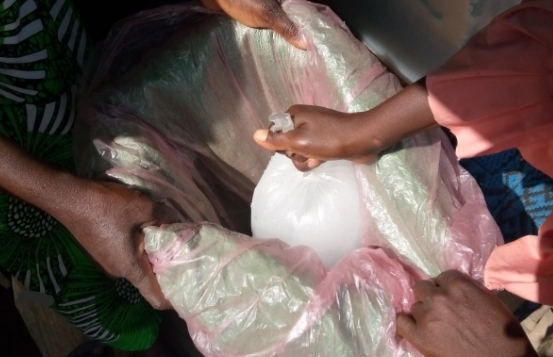
Another retailer running the same business, 33-year-old Zainab, said though she had no option than to buy ice blocks, the stress of getting it is a major concern.

“Before, ice block was N100. Now, it’s N350. Most of the time, it’s hard to get. I spend almost N500 on transportation. Even if we see the ice block, I will need to fight to get it. I got injured one time,” she said.
‘CUSTOMERS LEAVE WHEN DRINKS ARE NOT COLD’
For Vivian, another soft drinks seller, retaining customers is what has been worrying.
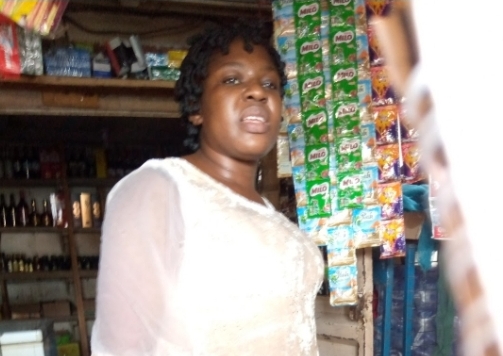
“Customers leave when they hear drinks are not cold. Ice blocks are consuming my money as you sell the exact amount you sell when there is light,” she said.
“I continue this business just to retain my customers. You know when customers come today and they don’t get what they need, they won’t come again.
“They may not give us light for a week. So, I started buying ice blocks. Before, a piece was N100 or N150, but now, it is N400. Every day, I buy six pieces.”
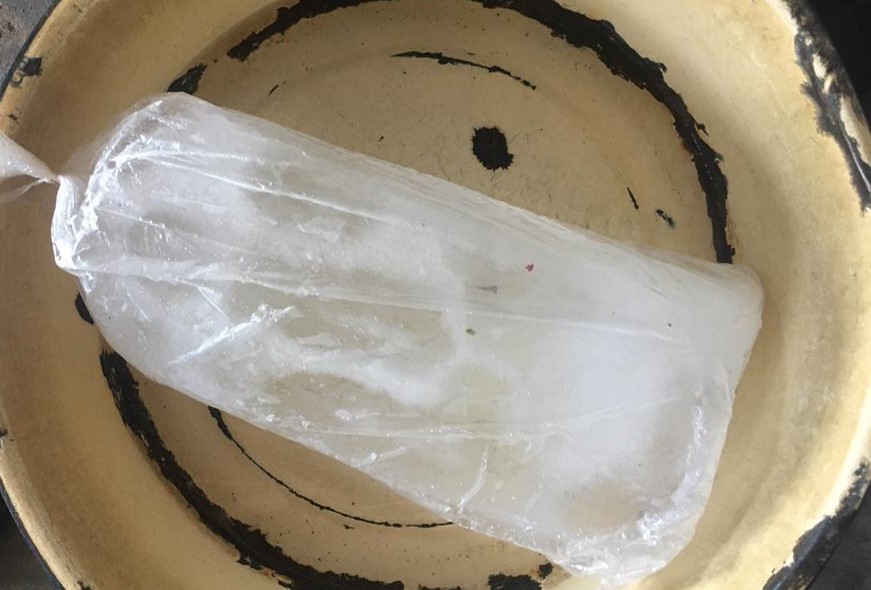
ABANDONED FREEZERS, RECURRENT LOSSES
Unlike other retailers who sustain their business with ice blocks, Lola Tobi said buying ice blocks will only result in zero profit.
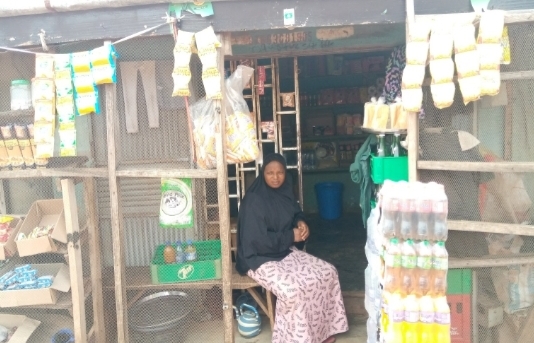
“For about five days now, we have not had light and I sell drinks for those who work under extreme weather. Today, a customer wanted to buy two malt drinks, but he left as soon as I told him it was not cold,” she said.
“Since we don’t have light, we are unable to make sales. I don’t buy ice blocks because if I buy it, I won’t be able to make any profit.”
‘ONLY A FEW CUSTOMERS CAN BEAR HEAT’
“It is unfair what the electricity company is doing. They have disrupted my business,” Oyekanmi, a hairdresser, said.
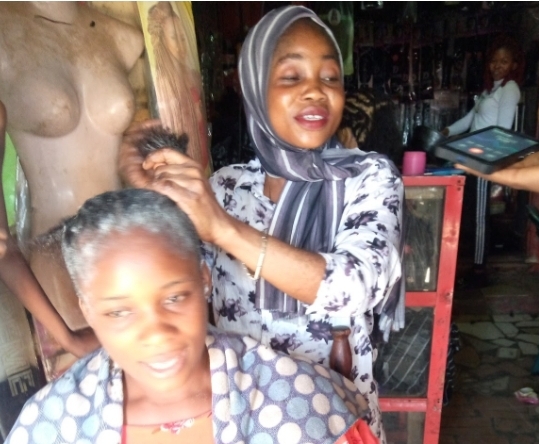
“Only a few customers can bear the situation. There is heat now. As you can see, I am working now. If I finish it, I won’t be able to dry the hair. I will use a hand fan to do that.”
On her part, Abdulfatah Jimoh, also a hairstylist, said she is tired of the situation as it hinders her income.
“It is really affecting me. My income has stopped because there are no customers. Customers patronise those with generators. In fact, some of my customers have advised me to buy a generator but where is the money?” she asked.
Despite the challenges, some of the retailers have expressed interest in continuing, while opting for alternative means of income.
“We can’t leave this business because that’s what we know how to do,” Mummy Akeem, popularly known as Iya Eleja (fish seller), said as she recounted her losses.
“This business is my only means of survival. It has been long since we had electricity here. As I’m into frozen foods, I need power supply for my goods. But now, my business is literally crumbling.
“Unlike before when I sold about five cartons of fish and chicken daily, I now buy half of a carton which I sell daily. Whenever it remains, we eat it at home or I smoke it to avoid spoilage. I have stopped buying frozen foods that can’t be smoked.
“Nowadays, it’s difficult to cater for our family. Recently, I borrowed money to pay tuition fees for my children. And it has been hard to repay the money as there is no profit.
“As a result of poor power supply, I resorted to selling smoked fish. I also tried selling foodstuffs but it crashed due to the financial crisis.”
‘WOMEN ARE GREATEST ECONOMIC ASSETS’
Kingsley Ndimele, a business consultant, said women retailers play a significant role in the economy, adding that businesses run by women should not be neglected.
“Women are the greatest economic assets of any country. Going by statistics, about half of the GDP of Nigeria economy is being contributed by people in medium and small enterprises across all sectors, of which about 41 to 43 percent are women,” he said.
“According to statistics, businesses experience an average of 239 hours of power outage every month. Annually, Nigeria loses about $28 billion due to power outage. This amount is equal to 2 percent of the GDP. With this erratic power supply, Nigeria is losing big and businesses are suffering.”
Jide Ojo, a public affairs analyst, also described how women contribute to the country’s economy.
“The contributions of women to the economy are very enormous. From time immemorial, women are good traders. That’s why we have more market women than market men, and they are multi-tasking in nature; taking care of home and businesses,” he said.
Proffering solutions, Ojo urged the government to improve on the provision of electricity supply, while Ndimele called for more efforts on export and energy diversification.
Giving an update on the electricity situation as of September 2022, Fatimoh, Oladipupo, and Maryam said the light situation had improved.
However, Zainab and ‘Mummy Akeem’, the fish seller, said the power supply problem persists.
Add a comment
Read more
Ownership tussle over Benin DisCo may throw Ekiti, Delta into darkness, BPE warns
September 19, 2022 10:41 am
‘It has no nutrition’ — FG to ban ‘ponmo’ to revive leather industry
September 19, 2022 10:49 am
Gridlock as students block Lagos airport over ASUU strike
September 19, 2022 11:20 am
Woman ‘chasing cheating husband’ dies in car crash in Calabar
September 19, 2022 11:55 am
Polygamy better than infidelity, says Yul Edochie’s brother
September 19, 2022 2:06 pm

